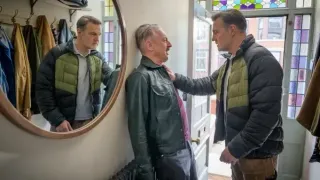Mar 1
Trump Expected to Sign Order Designating English as the Official Language of the U.S.
Michelle L. Price READ TIME: 2 MIN.
President Donald Trump is expected to sign an executive order designating English as the official language of the United States, according to the White House.
The order will allow government agencies and organizations that receive federal funding to choose whether to continue to offer documents and services in language other than English, according to a fact sheet about the impending order.
Trump had been expected to sign the order Friday. But by Friday night, the White House had not announced the order had been signed and did not immediately respond to a message seeking comment.
The executive order will rescind a mandate from former President Bill Clinton that required the government and organizations that received federal funding to provide language assistance to non-English speakers.
Designating English as the national language "promotes unity, establishes efficiency in government operations, and creates a pathway for civic engagement," according to the White House.
More than 30 states have already passed laws designating English as their official language, according to U.S. English, a group that advocates for making English the official language in the United States.
For decades, lawmakers in Congress have introduced legislation to designate English as the official language of the U.S., but those efforts have not succeeded.
Within hours of Trump's inauguration last month, the new administration took down the Spanish language version of the official White House website.
Hispanic advocacy groups and others expressed confusion and frustration at the change. The White House said at the time it was committed to bringing the Spanish language version of the website back online. As of Friday, it was still not restored.
The White House did not immediately respond to a message about whether that would happen.
Trump shut down the Spanish version of the website during his first term. It was restored when President Joe Biden was inaugurated.
The Wall Street Journal first reported on the order Friday.






